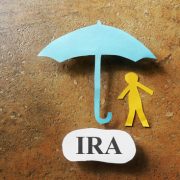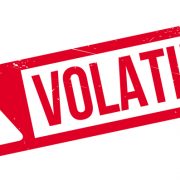Key Investments to Avoid in a Self-Directed IRA
The good news about Self-Directed IRAs? Opening one up for yourself gives you retirement tax benefits for a range of potential assets: real estate, precious metals, private companies, and more. The bad news? Well, it’s not exactly bad news as much as it is a limit: you can’t invest in everything in your IRA. The IRS wants to make sure that people only invest in legitimate retirement assets: a rental property, for example, or a share of stock. So before you start investing, you’ll have to know what you can’t hold within a Self-Directed IRA—at least not if you want to avoid tax penalties and potentially losing the tax-protected status of your account.
Life Insurance and Certain Precious Metals
True: Self-Directed IRAs do offer flexibility. But you should be aware of some of the limitations on the types of assets you can hold within them. Life insurance policies and certain precious metals, such as collectible coins or bullion that don’t meet IRS purity standards, are two key examples.
Why life insurance? It’s not an “investment” in the traditional sense. Many people think of it that way—they put money in with the anticipation of potentially receiving money for their family down the line—but as it’s not a true-blue investment, it wouldn’t be a valid asset to hold in a Self-Directed IRA.
As for precious metals? While gold and silver bullion of a certain purity are permissible, collectible coins are not. You’ll want to familiarize yourself with IRS guidelines regarding acceptable precious metals to ensure compliance with Self-Directed IRA regulations.
Art, Alcoholic Beverages, and Collectibles
Investors may be tempted to include tangible assets like art, fine wine, or collectible stamps in their Self-Directed IRAs. And in fact, you may even own some of these personally, considering them as a long-term investment that may one day pay off during retirement. But these items are considered collectibles by the IRS and are therefore prohibited investments.
Why? It’s too hard to gauge the value of a bottle of wine, for example, or a collectible that may or may not fetch a lot of money. That’s why alcoholic beverages, even those of exceptional value or rarity, can’t be held in a Self-Directed IRA. While these assets may hold intrinsic value, they don’t meet the criteria for retirement investments outlined by the IRS. You can hold them personally, but not with the tax benefits of an IRA.
Using Self-Directed IRAs as Loan Collateral
Having money in an IRA can feel powerful—that if you can use it a collateral on a loan, you can extend yourself further. Don’t be tempted! You can’t do this. While it may be tempting to leverage your retirement savings to secure a loan, doing so can result in severe tax consequences and potentially jeopardize the tax-protected status of your account. The IRS strictly prohibits Self-Directed IRA owners from using their retirement funds as collateral. There may only be an exception for a non-recourse loan within the IRA itself, but consult with a tax advisor before you do anything.
When investing in a Self-Directed IRA, you have to adhere to IRS guidelines to avoid costly penalties and maintain the tax benefits of a retirement account. Steer clear of these prohibited investments in an IRA. Remember what they are: life insurance, certain precious metals, art, alcoholic beverages, collectibles, and using your IRA as loan collateral. When you do so, you can safeguard your financial future and maximize the benefits of Self-Directed investing.
Interested in learning more about Self-Directed IRAs? Contact American IRA, LLC at 866-7500-IRA (472) for a free consultation. Download our free guides or visit us online at www.AmericanIRA.com.









